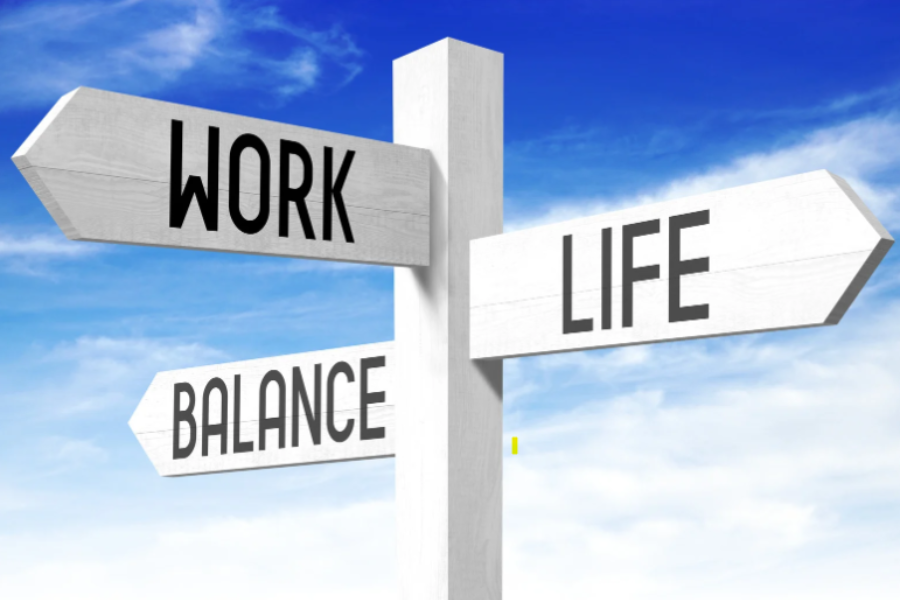Straightforward Ways to Handle Overwhelm at Work and Still Get the Job Done
Today's finance professional has a lot on their plate. From managing your team to working alongside an agency to recruit the perfect new skills, there's so much to do that it can leave your head spinning.
Sometimes, the stress piles up to a point where you can no longer focus on the project you need to get done. Instead, you directly go into meltdown mode, and stare at your computer or machinery, hoping for inspiration to strike.
The key to success in any chaotic company is figuring out how to reduce feelings of overwhelm at work, while still getting the job done. Whether you’re a finance professional responsible for the cash flow of an entire company, working in practice or industry, the following tips will help to give structure to your schedule.
1. Focus on One Thing at a Time

Often, overwhelm happens because you spend your time staring helplessly at a huge to-do list, instead of gradually chipping away at the mountain of tasks you need to get done. If you're too busy panicking about how you're going to find the time for all the jobs clogging up your inbox, then you're not going to be able to focus on the task at hand.
Start by writing everything you need to do down on a piece of paper, breaking each project down into manageable bite-sized chunks, then prioritize your tasks from "most pressing" to least important. Once you've got an official "number one" project, start working on that, and forget about the rest.
2. Remove Anything Unnecessary from Your Workload
While you're looking through your to-do-list and thinking about the things you need to get done, you can also get rid of anything that doesn't absolutely have to be there. If you can delegate smaller tasks elsewhere, or merely postpone certain chores to a later date, then that might help to take some of the pressure off your plate.
Differentiate between things that you "need" to get done, and things that you'd like to get done, and make sure that you don't let the wrong things clog up your schedule. This will help you to feel more focused and engaged, and reduce your risk of encountering any missed deadlines.
3. Learn to Say Yes and No Strategically

We all take on more responsibilities than we can handle sometimes. Unfortunately, if you're so used to saying "yes" that you agree to work yourself into an early grave, then this might be a sign that you need to make some changes.
Achieving goals in your career doesn't have to mean pushing yourself beyond what you can reasonably accomplish, or make a name for yourself as the go-to guy. Sometimes, you need to learn how to say no graciously, and diplomatically, so you can concentrate on keeping the quality of your results high and looking after your health at the same time.
If you never say no, and that habit ends up making you sick or forcing you to rush through essential pieces of work, then you can end up damaging your reputation, and reduce your chances of important opportunities later in life.
4. Manage Your Distractions
Procrastination is the enemy of productivity, but it's something that most professionals find themselves facing at one point or another. Some distractions will be things that you can't control. For instance, an engineer might be pulled away from their tasks several times a day to go over new blueprints and plans, answer emails, or attend company meetings.
However, there are also distractions in life that you can keep a lid on with a little practice. If you're an accountant who continually finds themselves looking at their phone when they're supposed to be adding up numbers, turn your device off for a couple of hours - at least until you've got the first task on your list completed.
It's easier to search for distractions than to tackle a pile of challenges head-on, but you'll need to overcome the urge to procrastinate if you want to see the light at the end of the tunnel.
5. Look After Yourself

Finally, remember that being dedicated to your job doesn't have to mean compromising on good health. I can't tell you the amount of times that I have been told that people pull late nights on a regular basis because they feel they have "too much to do".
While there's nothing wrong with going above and beyond for your career, you also need to know when to power down and take some time for yourself. Forcing yourself to push forward constantly increases the chances that you'll make mistakes in your projects, or expose yourself to illness. If you're too sick to go to the office, then you can't accomplish anything.
Know when to give yourself a break, and start again fresh the next morning.
About First2Recruit
First2Recruit, are an owner managed recruitment consultancy providing a full recruitment service including; permanent and FTC positions in Accountancy Practice and Insolvency across the UK.